Posts Tagged ‘Made for Change’
10 Ways We’re Bringing Hope, Healing and Transformation in 2022
Across the globe, extreme poverty and mass displacement are on the rise, aggravated by the ongoing COVID pandemic. We’re currently facing the greatest humanitarian crisis of our time. And yet, there is hope. God is moving, and you’re invited to move too. Together, we’re bringing hope, healing and transformation to 2022.
As Myal Greene, World Relief President and CEO, recently said, “We have the opportunity to respond together as God’s church… Across the globe, men and women just like you are rising up to meet the needs of the most vulnerable among them.”
No one of us can carry the world’s burdens on our own. But when we move together, anything is possible. Will you join us?
In Burundi, we will expand our Sunday school and child protection programming in the Gitega region through 60 local churches, reaching 3,600 children in Sunday school and educating 120 church leaders on child protection.
In Cambodia, we will double the number of church networks with which we partner as we continue discipling home churches about God’s call to holistically love and serve the vulnerable.
In DR Congo, we will respond to the needs of over 125,000 vulnerable families returning from conflict in Tanganyika Province.
In Haiti, we will launch a youth empowerment agriculture-business program in the Belle Anse region.
In Kenya, we will launch our first child protection programming in the country.
In Malawi, we will mainstream our disability inclusion programming into all our work country-wide.
In Rwanda, we will expand our programming into a new region, the Gisagara District, as well as expand and scale our disability inclusion programming.
In South Sudan, we will expand our peace and reconciliation program to four additional counties located within a conflict prone region.
In Sudan, we will reach over 1.5 million people with a focus on those with special needs and others who have been neglected.
In the U.S, we will engage 1,000 church partners and 10,000 volunteers as we welcome 9,500 refugees and other immigrants into our local communities.
In faith, we’re expecting God to move greatly, even miraculously, this year. Stay informed about how God is moving through World Relief by signing up for our monthly newsletter below. Thank you for moving with us!

Kelly Hill serves as a Content Writer at World Relief. She previously served as Volunteer Services Manager at World Relief Triad in North Carolina before moving to Salt Lake City. With a background in International and Intercultural Communication, she is passionate about the power of story to connect people of diverse experiences.
Expect A Miracle: Reimagining Our Lives in the New Year
Though the new year may be upon us, many of us are still moving through the immense amount of change we’ve experienced over the last two years. Today, Karen Gonzalez encourages us to see change as God’s vehicle for renewing and reimagining our lives.
We invite you to read or listen to Karen’s message below, then check out the entire Made for Change Audio Series, created to help you experience God’s presence in the midst of change. May you find the peace and presence of our good and loving God, the one who can do more than we could ever ask for or imagine.
Listen to the audio version of this blog post and find more audio meditations here.
Another Year of Change
When I was little, my grandmother sent me a card every year for my birthday. She would always write a special message inside, and then in the corner, in small, careful print she would write, “Jesus loves you and so do I. Expect a miracle.”
“Expect a miracle” were the words she lived by. They sustained her and reminded her that the Almighty would act in unexpected ways for her good and for God’s own glory.
Many of us can likely relate to my grandmother… 2020 – and subsequently 2021 — have been difficult years, in ways most of us could not have imagined: We faced a contentious election season, a global pandemic, racial unrest and economic turmoil.
We are grateful to say goodbye to the old, difficult year and welcome the potential this new one holds. We want to expect a miracle — something different but welcome, surprising but joyful. And so we come to this new year with expectation, with the assurance that God makes all things new, even us.
Change reimagines. It’s what God uses to reimagine our present circumstances and give us hope for a future beyond anything we could ever ask.
Naomi’s Story
I’ve been reflecting on the story of Naomi in the book of Ruth. For a woman whose name meant “pleasant,” Naomi led a life of suffering and grief. She experienced famine, forced migration, widowhood, the death of her sons, abject poverty and an uncertain future.
After the death of her children, Naomi returned home to Bethlehem for a new beginning in the company of her widowed daughter-in-law, Ruth.
But to Naomi, the future did not look bright. She knew that having a husband and sons was the only way to ensure her survival, the only means for a woman’s economic sustenance in her society. Without them, she could not imagine a life full of anything but poverty and despair.
The best Naomi could hope for were the provisions in God’s law, designed to care for poor people like her: gleaning the leftovers in the fields and vineyards.
She railed against God, bellowing that her name should have been bitter, not pleasant, because her life had been bitter, “The Lord has afflicted me,” she cried, “and brought misfortune upon me. I went away full but now I am empty.”
In a million years, Naomi could not have guessed that the terrible changes in her life would be God’s vehicle for reimagining her life. Though the pain and the loss would not be erased, they would be robbed of their sting because God would redeem and restore her life.
Naomi, a woman who thought that men — a husband and sons — were God’s only way of providing for her well-being, could never have imagined that a woman — her loyal daughter-in-law — would be the path through which she’d experience God’s faithfulness.
By the end of the story, Ruth had remarried and given birth to a son. Naomi gets to hold her grandson as part of a new family. She listens as her Bethlehem neighbors rejoice with her and proclaim, “your daughter-in-law who loves you is more to you than seven sons.”
Reimagining the Future
Today, we know that this grandson is in the lineage of Jesus. Naomi’s reimagined life connected her to the story of the salvation of all humankind. Change reimagines, not just Naomi’s life but yours and mine.
God worked in Naomi’s life through means that were entirely unexpected — like a phoenix, Naomi rose from the ashes of her scorched life. As the Psalmist says… Naomi got to see the goodness of the Lord in the land of the living.
We don’t know what will happen this new year, but we know who will be with us through it — our good and loving God, the one who can do more than we could ever ask for or imagine. Change is God’s vehicle to renew and reimagine our lives.
As the Apostle Paul writes in Ephesians 3:20 & 21: “Now to him who is able to do immeasurably more than all we ask or imagine according to his power that is at work within us to him be glory in the church and in Christ Jesus throughout all generations forever and ever!”
Friends, expect a miracle.

Karen Gonzalez serves as the Director of Human Services at World Relief and is the author of the new book The God Who Sees: Immigrants, the Bible and the Journey to Belong.
Welcoming Afghans in San Diego
Since August, World Relief has welcomed and resettled over 1,000 Afghans who had been evacuated out of Kabul. Today, over 34,000 Afghans remain on eight U.S. military bases awaiting their chance at a new life in the U.S. World Relief is diligently preparing to resettle up to 7,000 of these brave individuals between now and March 2022.
The need is great, and we couldn’t do this work without the help of partners like Hope for San Diego.Today, Susie Fikse, Executive Director at Hope for San Diego, talks about why partnering with World Relief is critical to Hope for San Diego’s mission. Read more to find out how you and your community can move with us, just like Susie and Hope for San Diego have done. Together, we can create communities of love and welcome that we all feel proud to be a part of.
First, can you tell us a little about Hope for San Diego?
Hope for San Diego is an independent non-profit with a mission to engage our community to care for and invest in our under-served neighbors. Our focus areas include refugees/ immigrants, sex trafficking, foster care and homelessness—all pressing issues in San Diego.
How did you first get connected with World Relief?
Twenty-five years ago, I was living in Atlanta. The church my family attended was involved with World Relief, and I signed up to bring Thanksgiving dinner to a refugee family. I remember standing at the door of this family’s small apartment. There were eight people living there. They had no furniture in the living room, but they welcomed me and my family and offered us drinks and fruit. We couldn’t really communicate because of the language barrier, but it was a really meaningful and eye-opening experience.
How did you help bring World Relief to San Diego?
Shortly after I took the job as Executive Director of Hope for San Diego, we began working with refugees in the area. Soon we realized that there were many organizations doing many different things for refugees — all of them great, but very uncoordinated.
For a long time, I felt the need for some kind of umbrella organization to help bring all our efforts together and to make sure the work we were doing was helping instead of hurting. I knew World Relief would be a great partner to bring us all together and help facilitate healthy ministry.
We connected with the World Relief SoCal office, and they did a few trainings with us and our church partners. But when the border crisis came to a head a couple of years ago, it became clear that we needed the expertise of World Relief in closer proximity to all these needs! It took some time to figure out how to make it work, but in March, we were able to fund the first full-time World Relief staff in San Diego, and a group of churches assembled to collaborate in building a more effective ministry to refugees.
Aside from funding, how else does Hope for San Diego partner with World Relief?
Our partner churches volunteer in different ways through the connections World Relief provides, whether that is building friendships with refugees, providing tangible support like furniture or shoes, or participating in tutoring programs.
We have also hosted World Relief speakers at educational events, which is a powerful way to help our community build a Biblical worldview of immigration. Likewise, we sent a select group of leaders on a Border Vision Trip, which opened eyes to the complexity of immigration issues facing people just 30 minutes from our homes.
How is Hope for San Diego specifically working to welcome and resettle Afghans in your community?
Thanks to the support of people within our eight partner churches and other community members, we were very quickly able to form two Good Neighbor Teams, mobilize volunteers to set up apartments and deliver groceries, secure 40 mattress donations and pre-paid phone cards, among so many other things. The immediate and continued response from the community has been encouraging.
We believe that relationships designed to support self-sufficiency are the key to long term transformation—both of the refugees and the volunteers that engage with them. Our goal is to create a minimum of 10 Good Neighbor Teams (4-5 people each) through our partnership with World Relief that will commit to building genuine, long-term friendships, helping refugee families orient to American life and create a future here.
We also believe another key element of welcoming refugees is educating our community about their plight and celebrating the diversity that they help create so in January, we’re hosting and event called “From Strangers to Neighbors.” Matt Soerens from World Relief will be there to speak and we’re eager for the ways this will engage and equip others in our community to respond.
Why is partnering with World Relief one of the things you’ve continued to hold onto?
The work of World Relief is more essential than ever before. The gaps between the affluent and the poor continue to widen and World Relief is helping to bridge those gaps. When I see a refugee family of nine living in a two-bedroom apartment and six kids trying to do online school while their parents are working two jobs, I know that we need to come alongside these families to provide support. Without organizations like World Relief, these kids are going to fall further behind, which has long-term consequences for all of us.
What is your vision for the Church in San Diego, and how do you see World Relief playing a role in that vision?
Our vision is to see God renew San Diego so that even people in the most vulnerable situations can thrive. Our city is not experiencing shalom in the way God intended unless all people are thriving, not just those within our churches. The Church is the vehicle God wants to use to bring renewal and hope to our city. But that means we have to step outside the church and outside our comfort zone to build relationships. In order to do that, we need the right opportunities and the right training. World Relief provides that for us.
We are so grateful for partners like Susie and Hope for San Diego who remind us that when we move together, we can be an irresistible force for good and an agent of lasting change. Help create communities of love and welcome this season by moving with us and giving today.

Rachel Clair serves as a Content Writer at World Relief. With a background in creative writing and children’s ministry, she is passionate about helping people of all ages think creatively and love God with their hearts, souls and minds.
Change Unites to Bring Peace and Restoration
Today, on International Day of Peace, harmony seems hard to find. Friends, families, communities and nations are divided. If you’re like us, your heart aches at the divisions driving disunity, conflict and even war around the world. But we believe God’s heart is for reconciliation — and wherever God is, there is hope.
World Relief DR Congo’s Berger Bireo shares how he came to understand that a unified church has the power to create lasting change in communities around the globe — his own included. This lesson in unity not only shaped Berger’s own view of the church, but has motivated him to build peace and call the global church to unite in our common identity as children of God, being agents of peace wherever we go.
*This blog was originally published on Nov. 23, 2020 and was updated on Sept. 21, 2021.
“Blessed are those who bring peace, for they will be called children of God. ” – Matthew 5: 9
Cycles of Conflict
The Democratic Republic of the Congo (DRC), referred to affectionately as the Heart of Africa — rich in resource, culture and beauty. As the second largest country in Africa, she is home to over 60 million people representing more than 450 tribes and languages.
Although DRC’s tribes have lived together for centuries, some influential leaders have exploited their differences and created artificial ethnic rivalries. Sustained conflicts have been fueled by various sources: armed militias, land disputes, the return of refugees and internally displaced people, gender-based violence and the widespread rape of women. As a result, the nation and its people have been engaged in a cycle of conflict and violence which has stolen more than five million lives and kept millions more from being able to realize their full potential.
Since 1996, people have not experienced a notable period of peace. In fact, the majority of children in eastern DRC have never known peace in their lives.
An Instrument of Peace
It’s easy to be overwhelmed and discouraged by this conflict-ridden history. There are days when I myself struggle to see beyond these seemingly devastating challenges. Yet I believe that God gave us the very instrument needed to establish peace in DRC: the Church.
I did not always recognize the power the local church could have in bringing peace to DRC. In fact, prior to joining the World Relief team, I worked as a Pentecostal pastor. I loved my congregation, but we were inward-looking, believing our needs and our views were all that was important. Working with World Relief has changed the way I view things. I now see that when the whole body of Christ is united together — regardless of church or denomination – we can move mountains.
At World Relief, we believe that when the church is mobilized to achieve its full potential, it has the power to change our world. The local church offers the greatest hope of reconciliation between classes, tribes, ethnicities and political parties by unifying people under a common identity in Christ. In DRC, I’ve seen this with my own eyes.
As head of the Department of Mobilizing Churches for Integral Mission, I lead trainings with local church leaders, encouraging them to recognize the positive impact of coming together in unity to address their community’s problems. Together, I’ve witnessed these once divided churches mobilize to serve the most vulnerable — building houses for widows and widowers, visiting the sick and taking care of orphans.
As a field agent, I also facilitated the establishment of 130 village peace committees in some of the DRC’s most tumultuous areas. Through this effort, we reunited more than 2,000 divided families, as well as the communities of North Kivu Province, who once saw one another as enemies, but who today come together as friends working toward peace and unity.
Village Peace Committees are part of an ongoing peacebuilding initiative that World Relief has embarked on in partnership with local churches and community leaders in eastern DRC. Each committee is made up of 10 members from various social and ethnic groups in the community who are trained in conflict mediation and relationship restoration, seeking to promote peace between individuals, families and communities. This mediation interrupts the cycles of revenge that have the potential to escalate to violence by focusing on reconciliation and forgiveness.
A Vision for Unity
Today, many local churches have become instruments for transformation and unity in DRC. Five years ago I would not have believed this possible. And it’s my greatest prayer that this can be true for the global church, too — that God’s people, united around their common identity as children of the Most High, would lead us in the way of Peace.
On the night before He was crucified, Jesus prayed that we would be one as He and the Father were one (John 17:21). The theme extends throughout scripture. Psalm 133 exclaims “how good and pleasant is it when brothers dwell together in unity.”
1 Corinthians 1:10 appeals “that there be no divisions among you.” And Galatians 3:28 tells us “There is neither Jew nor Gentile, neither slave nor free, nor is there male and female, for you are all one in Christ Jesus.”
As Christians, we are called to be agents of peace, and to put our identity in Christ alone. This is no small task, and it is hard work. But I believe this was the very purpose for which the church was created. As followers of Jesus, we must be the shining city upon the hill. We must lead in love because we cannot call people to live differently if we ourselves cannot gather together in peace and unity.
Each night, my family and I gather in prayer for DRC. We pray for the people of our nation, for sustainable peace and for DRC to serve as an example of the change that is possible when once divided churches and communities unify for peace.
Take the next step to build peace and lasting change in communities across the globe by joining The Path. Now through September 30, 2021, when you join The Path with a monthly gift, your entire first year of giving will be matched up to $100,000.
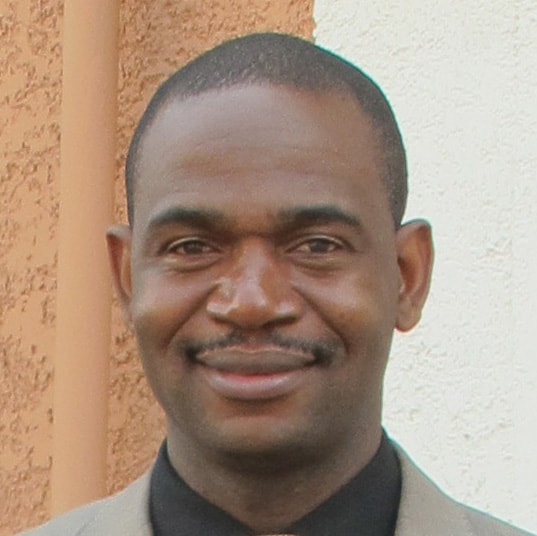
Berger Bireo has been working with World Relief DR Congo since 2013. He started as a conflict resolution facilitator and is currently Deputy Program Coordinator and Chaplain of World Relief Congo. He is passionate about working for social, economic and spiritual change for World Relief staff and their families, as well as for whole communities in order to create peace for the sustainable development of God‘s children.
Beneath the Chaos Resilience Bloomed: Our Global COVID Response
It was three o’clock on a Tuesday afternoon when Laura Fontaine, Director of World Relief Quad Cities, got the call. A woman in the Congolese community had contracted COVID-19. Shutdowns had already begun across much of the U.S., and World Relief followed suit, closing our offices and suspending all in-person programming.
Halfway across the globe, nearly 8,000 miles away, Moses Ndahiro and his team faced a similar situation in Rwanda when, in mid-March, the country went into total lockdown. As the team began working remotely, they turned to rapid communication tools through mobile platforms like WhatsApp to begin communicating with partners and disseminating COVID-19 prevention messages to churches and communities.
The sudden change and continued uncertainty were destabilizing, and it didn’t take long for the dramatic impact that COVID-19 could have on the world’s most vulnerable to become apparent.
And yet, during what was a very dark time, when we took a step back, we saw creativity, strength and persistence shine through. Fierce courage and bold love grew amidst our upturned world. Beneath the chaos, resilience bloomed.
Hope Because
The camelia behind our house started blooming in late January, causing me to wonder, “Does that happen often here in Seattle?” I’m new to the city and haven’t been through all four seasons yet, so I’m not sure. But seeing the blooms on that rainy Sunday morning got me to thinking about seasons.
Late winter is the season that most reminds me to look beyond what I see and think about what’s just out of sight. It is a season of potential.
When I see the tips of daffodils emerging or an early-blooming camelia, I don’t rejoice that spring has come because it hasn’t yet. But these little reminders that the roar of spring will soon unfold captures my imagination and invites me to consider the hope and potential of what’s to come in other areas of my life as well.
Something like this hopeful expectation has infected our team at World Relief. As we think about refugees who have been waiting for so long to be resettled, we have hope at the promise of an increased refugee ceiling. Like a gardener who sharpens tools and pores over seed catalogs in late winter, we are gearing up to welcome weary strangers whose long and halting journey to their new communities will likely resume in the year ahead. We pray for them as they wait. We pray and we hope.
Just on the other side of late winter comes spring — a season full of change.
There’s no need for me to dive into all the change we’ve experienced collectively this past year. I’m sure they’re springing to your mind even as you read this sentence. Instead, I’m wondering about the changes in your own life, your home, your ministry, your job, your health.
In losing the opportunity to meet together in person, I wonder if we’ve also lost the opportunity to share our stories with someone else as well, to turn our personal experiences into shared experiences. Do you miss that as much as I do? Or is that just an extrovert’s perspective?
As I’ve pondered these questions and the new season we are entering, I have found these meditations on change to be very helpful in transitioning to this new year, new season, new administration and new chapter of the pandemic. All of this change has given us a lot to sort through. Yet, at the same time, so many other things are standing still.
In this season of change, we find ourselves hoping for what’s on the horizon while still grieving the reality of what still is — the sickness, division, unresolved issues at our border and any number of unmet longings within our personal lives. It’s a lot to hold.
I’m reminded though, on the heels of Easter Sunday, that even in our waiting and in our grief we can still have hope. No matter what our changing circumstances may hold, we can have hope because God is faithful.
I hope you’ll take a few minutes to watch and listen to the meditation on hope that’s shared below. As you do, I pray you’d become more aware of how God is present in the current season you are in.
We are so grateful for the support you — our partners, our advocates our volunteers — have shown us in the past season, and we look forward to partnering with you in the new season ahead.
*Find more meditations like this one here
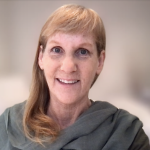
In March, 2020, Kim Hurst relocated to Seattle for her job as a Strategic Partnership Director, just in time to lock down with her husband for Covid19. Even without any face-to-face meetings quite yet, she feels privileged to be serving World Relief’s partners in the beautiful Pacific Northwest.
Change: Reimagining the Future for Families
This new year, we’re making space to reimagine the future and build a better world together. In the final post in our Made for Change series, Joanna Kretzer Chun and Debbie Dortzbach recount the way World Relief staff reimagined their approach to HIV prevention.
This reimagining led to the creation of a new program known as Families for Life. Families for Life is a couple-strengthening curriculum that continues to be adapted and reimagined in countries around the world.
“Vulnerability is the birthplace of innovation, creativity and change.”
― Brene Brown
A Quandary
In 2011, World Relief staff were faced with a quandary. We were in the middle of partnering with a church in India to start a typical HIV awareness and prevention workshop. Although there had been a decrease in HIV cases across India, the rates in 2011 were still quite high. In spite of governmental efforts as well as those of World Relief and other organizations like it, we weren’t seeing the results we had hoped to see.
I (Debbie) remember being kept up at night feeling disturbed that we weren’t making progress. I was at a loss for how to make the workshop more engaging and effective. But all that changed one day when I was riding on the train.
I remembered a report that told the story about how truck drivers in India were motivated to change their behaviors, not because they were afraid of contracting HIV but because they wanted to return to their families.
That little word “family” stuck out to me, and I wondered, “If this is what is motivating truck drivers to change their behaviors, why aren’t we using that as a motivator in our churches to prevent HIV and strengthen families?”
Surely the strengthening of families was something the church was called to do.
I shared these thoughts with some other team members, and that day on the train we began dreaming about what this new program could be. Change can feel vulnerable and unknown. But we knew that in order to foster greater programming effectiveness, we’d need to embrace a change, and thus the Families for Life (FFL) model was born within World Relief.
A New Way Forward
Implementation in India quickly showed that this new idea for engaging couples to spark behavior change was a huge success and filled a gap that no one else had been addressing. We soon realized that FFL could not only be effective in preventing HIV but also in helping couples address other critical issues like marital conflict and even domestic violence.
Groups began multiplying organically within churches and the wider community in southern India to meet the demand, and over time FFL blossomed, expanding out to an additional six countries, reaching thousands of couples across the globe.
At its core FFL seeks to strengthen the couple relationship as a foundation for a healthy family and calls for participants to be open to change and reimagine their futures together.
Using a combination of story, scripture, interactive discussion and personal reflection, these FFL groups go through a journey of growth together. Couples learn important skills like valuing one another, communication and problem-solving as a foundation to adapt to life circumstances and different seasons of life.
As couples work through our scripture-based curriculum, harmful beliefs about marriage and family begin to shift. Gender-based violence, alcoholism, poverty, abuse and unfaithfulness decline. Husbands begin to include their wives in everyday decisions; wives are empowered to contribute to their families’ economic growth; parents come to realize the value of educating both girls and boys; families begin intentionally planning for their futures.
Reimagining Again and Again
Families for Life is a unique model in that it can be reimagined again and again to meet the needs of a particular community, growing with that community as couples reimagine the future for their families.
Recently, in Burundi, we reimagined FFL to meet an unmet need for Family Planning. The curriculum was adapted to include information on family planning in order to prompt conversations around healthy timing and spacing of births.
This adaptation, while small, sparked new collaboration between couples, church leaders and community health workers, seeking to increase use of family planning services to reach 120,884 beneficiaries including 9,600 couples and their children. This adaptation has been successful in cultivating a trusted partnership between couples and community health workers and church leaders leading to a stronger demand for family planning services in the community.
In Haiti, we learned that one church network we worked with began hosting couples events that included games nights and all-night worship events. Once a month these churches host a family Sunday where pastors create sermons from the FFL manual. This is a community where we are no longer working, but the fruits of FFL continue to grow.
In Haiti, we learned that one church network we worked with began hosting couples events that included games nights and all-night worship events. Once a month these churches host a family Sunday where pastors create sermons from the FFL manual. This is a community where we are no longer working, but the fruits of FFL continue to grow.
Being open to change takes courage. This is true on a personal level for the couples we come alongside, but it’s also true for organizations seeking to implement effective programs. Knowing that change can lead to growth and even larger impact, World Relief continues to innovate and reimagine the future for couples and communities across the globe.
Give today, and join us as we reimagine the future alongside couples and communities across the globe.
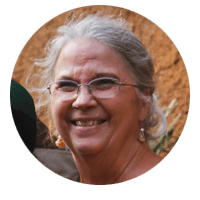
Debbie Dortzbach was privileged to raise her family in Kenya and spent most of her professional career in community health non-formal education training. During her many years working with World Relief, she helped to create and build the Families for Life model. She recently left full time work with World Relief and now enjoys reflecting, writing, serving her grandchildren, consulting, and advising.
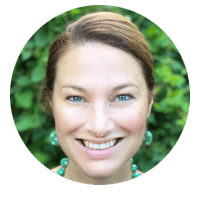
As the Director of the Program Resource Team, Joanna Kretzer Chun leads a team of global technical advisors that support World Relief international programs spanning Health and Nutrition, Savings, Agriculture, Child Development and Protection, and Couples’ Strengthening. With over fifteen years of international development experience, Joanna’s programming background spans the areas of gender mainstreaming, women’s empowerment, child protection, child development, faith leader engagement, and social norm change. Joanna holds Master degrees in Intercultural Studies and Family Studies from Fuller Seminary and a BA in Foreign Affairs from the University of Virginia. She resides with her family in Washington, DC.
2020: A Year in Review
Unprecedented. Painful. Chaotic. Uncertain. These are just a few of the words that I’ve heard to describe 2020. It’s true that the hardships and losses of this past year come to mind so easily. Yet, as I look back, so much good has also happened along the way. Hope. Love. Endurance. Generosity. Community.
We saw communities coming together. We saw hope and love endure. We saw incredible generosity. We discovered that we are made for change and that together, we can be an irresistible force of good.
In spite of all the hard things that have happened this past year, at World Relief, we’ve been incredibly encouraged by our dedicated staff and volunteers and by the generosity of partners like you. Below is just a glimpse of all the good and positive change we saw take place, and we are grateful that you were a part of it:
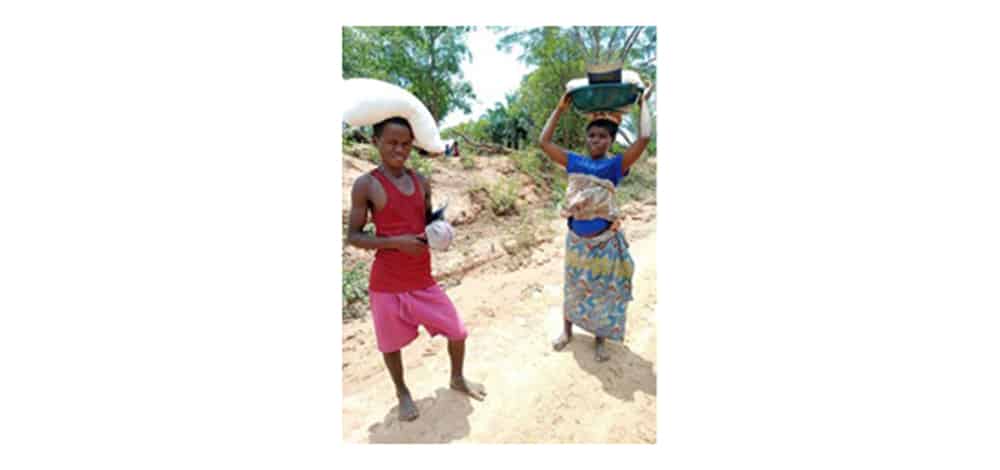
1. Better food security in Congo.
In the Democratic Republic of Congo, 27,438 of the most vulnerable households in the Tanganyika province have received seeds and agricultural tools. Each of these families has also been trained on modern, sustainable and affordable farming so they can begin to transition from a hunter-gather and forager lifestyle to having better year-round food security.

2. Creating opportunities for everyone in North Texas.
At World Relief North Texas, there now exists two new English language and citizen preparation classes — one specifically for Syrian refugees and another, for the first time, specifically for women. Many of the women who join are survivors of trafficking, gender-based violence or otherwise don’t feel comfortable in a classroom full of men.
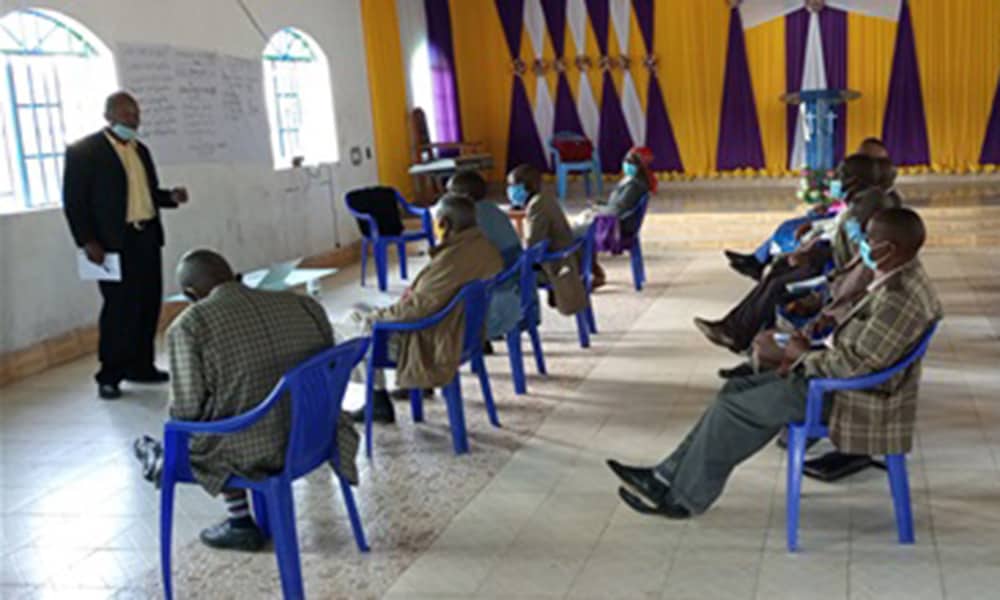
3. New Churches in Kenya.
Because we know the church is a powerful voice in communities, we’re celebrating 72 churches of different denominations in four regions in Kenya that will be instrumental in building a better future for their communities. These churches, like those pictured here at a meeting in Naivasha, will learn about the cycle of poverty, identify community needs, complete a project and begin transforming their futures.
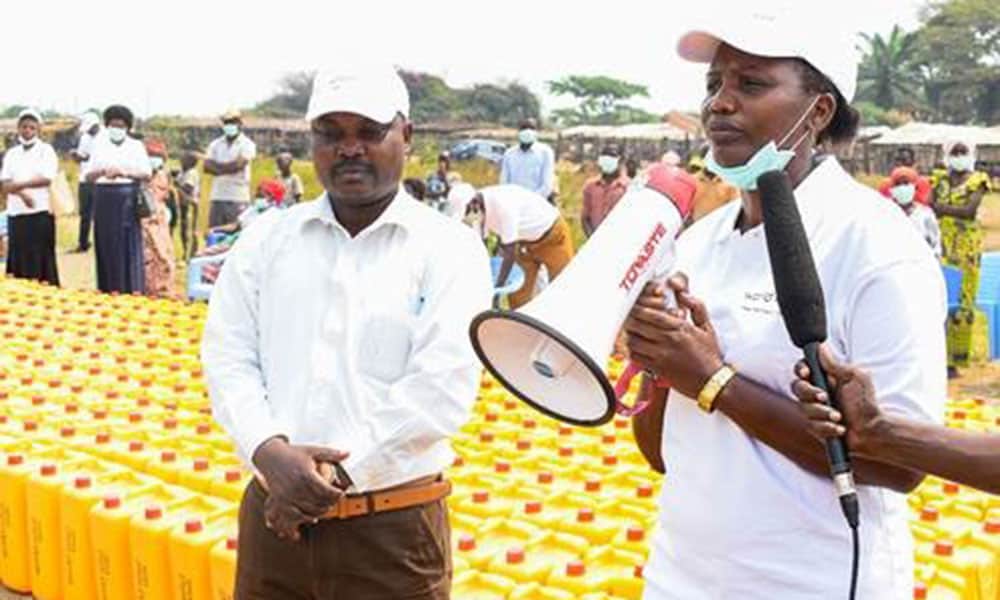
4. Better Hygiene in Burundi.
Families forced to flee their homes in Burundi can now enjoy the simple act of washing their hands and all the health benefits that come along with it. 500 wash kits including soap and these yellow containers were distributed to families in an internally displaced person camp.
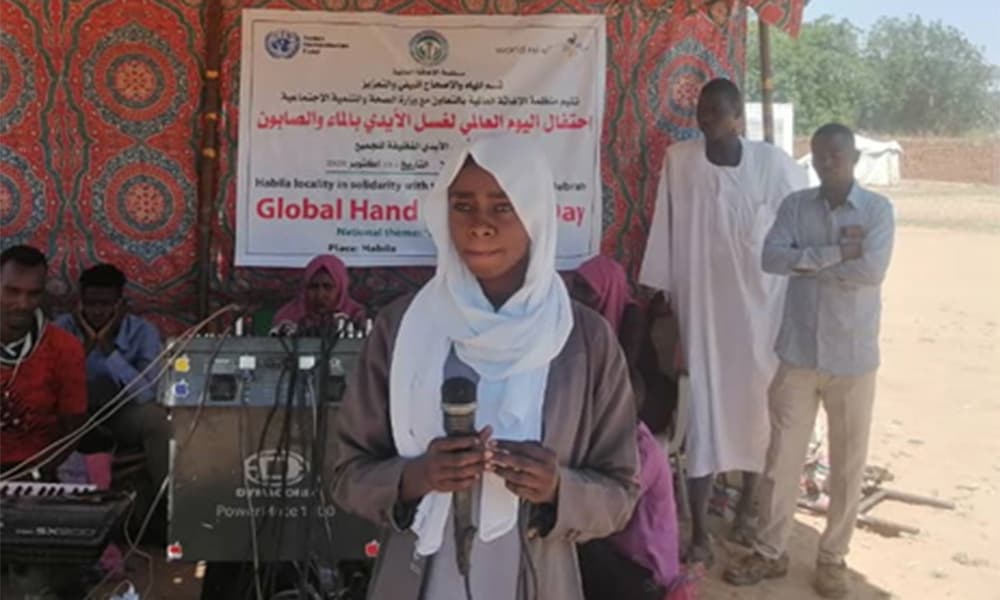
5. Staying healthy in Sudan.
In West and Central Darfur, COVID-19 prevention got a boost as 368 health workers were trained in infection, prevention and control in the early months of World Relief’s response. Proper hygiene was also celebrated at a Global Handwashing Day in West Darfur — a practice made even more important as we continue to work to slow the spread of COVID-19.
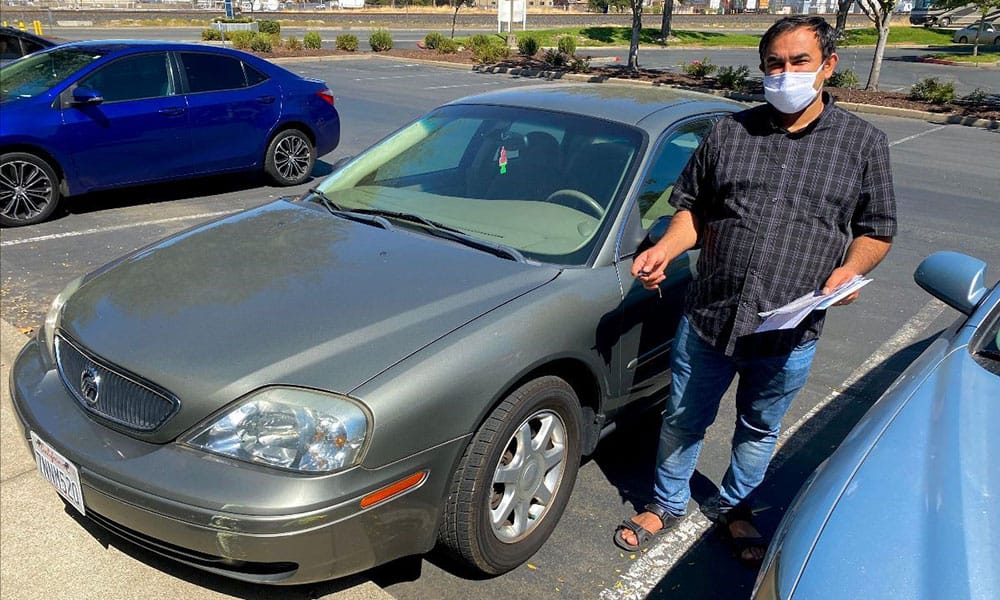
6. Self-sufficiency in Sacramento.
This summer, six families received cars through World Relief Sacramento’s car donation program. For people like Baktash, it means he is one step closer to being economically stable and can drive to work instead of walking 30 minutes each way. For people like Anas, it means keeping his job during the pandemic.
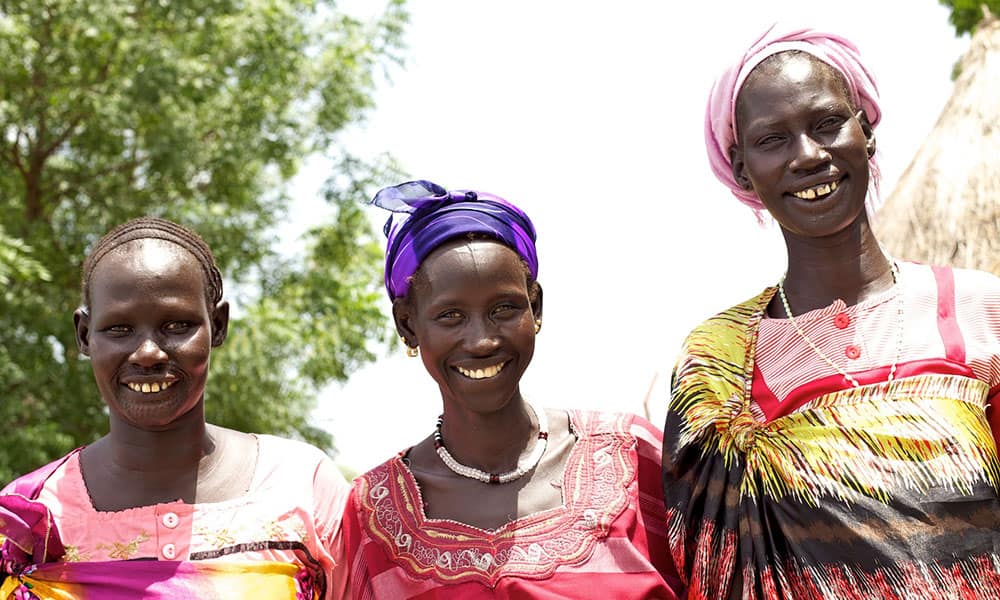
7. Improved health in South Sudan.
In the month of August alone, clinics supported by World Relief delivered 112 healthy babies, treated 276 children for malnutrition and treated 3,268 men, women and children for malaria.
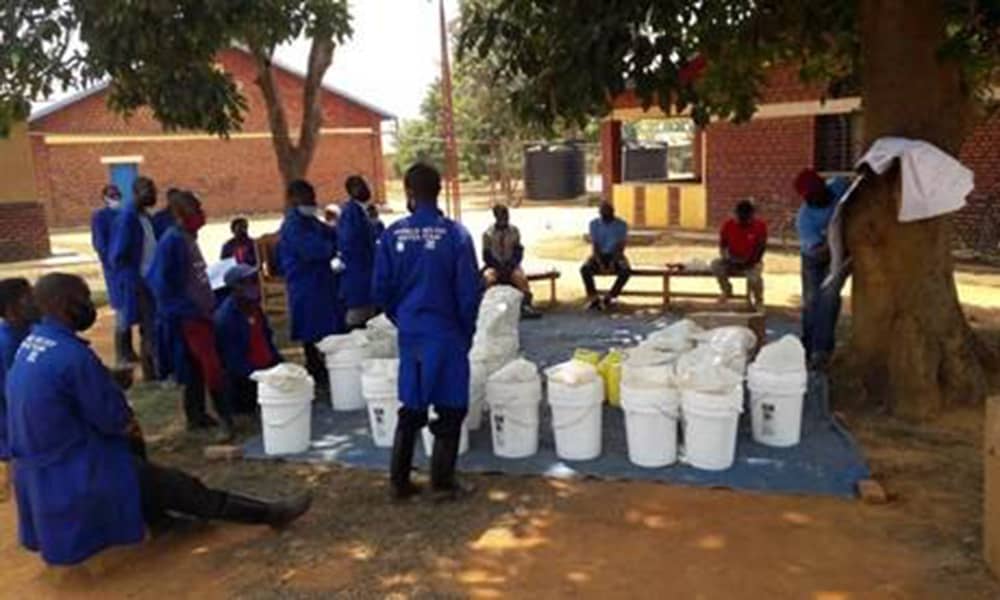
8. Clean water in Rwanda.
92 families have access to clean, healthy water at their homes in both Bugesera and Ngoma districts following the distribution of simple SAM III water filtration systems, shown here.
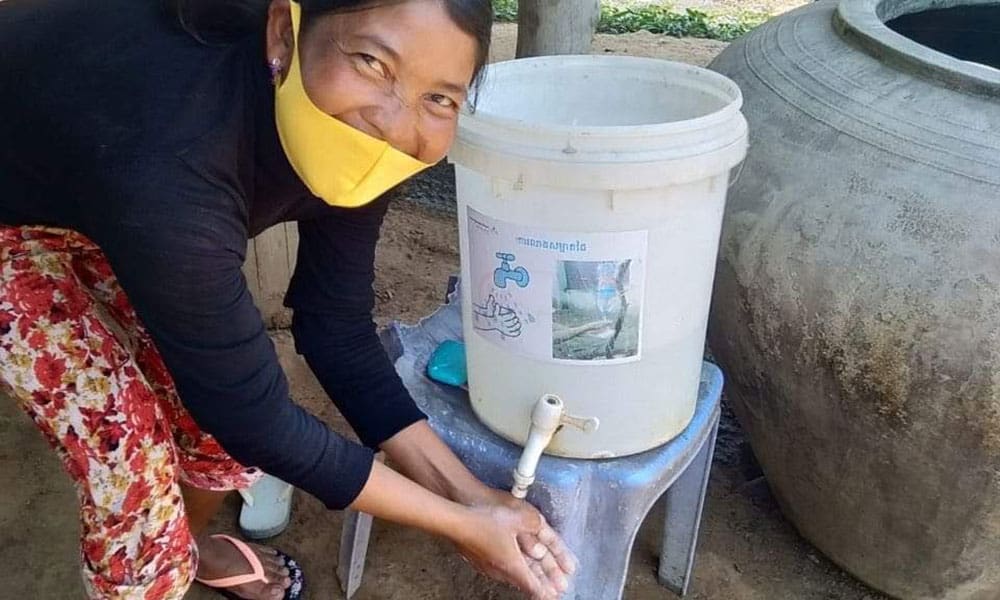
9. Church empowerment in Cambodia.
Through a new partnership with Khmer Evangelical Church, World Relief Cambodia is empowering new churches to serve the most vulnerable in their communities. We’re now able to reach households in two additional regions. In the early days of the COVID-19 pandemic, volunteers reached tens-of-thousands of people with prevention messages like hand washing, covering your cough and wearing masks.
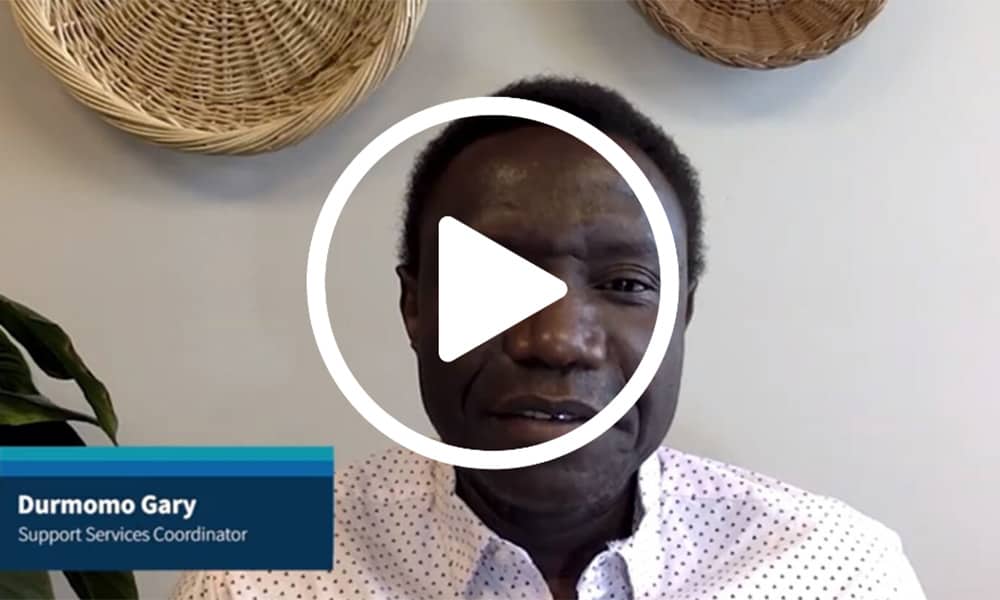
10. Renewed hope for refugees.
President-elect Biden has pledged to raise the refugee ceiling from 15,000 each year to a more historical average of 125,000. We are thankful for renewed hope for people who have lived through experiences like what Durmomo shares in this video, and we are calling on the President-elect to follow through.
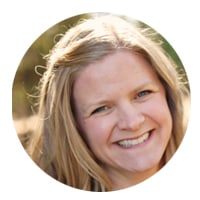
Karyn Bryant has worked with donors and philanthropists to put love into action for causes they feel passionate about. She joined World Relief’s strategic partnership team in January 2020. When not working, you might find her cooking, floating on a river or spending time with her husband and two young children where they reside just outside Sacramento, California.

Dana North serves as the Marketing Manager at World Relief. With a background in graphic design and advertising and experiences in community development and transformation, Dana seeks to use the power of words and action to help create a better world. Dana is especially passionate about seeking justice for women and girls around the world.
Unseen Hope
As we round the corner of 2020 toward the end of the year, we’re bringing you more made-for-change stories from across the World Relief community.
Today, Amberle Brown, World Relief’s MEL Advisor and Disability Inclusion Focal Point at World Relief, shares her story of living with a disability and how God is using her experience to bring disability inclusion training to World Relief’s global programs. Amberle’s story reminds us that change hopes because God is faithful.
A Lost Dream
The warm breeze carried the voices of the practicing church choir through the window of our office. I was sitting in a circle with a dozen of my colleagues in Burundi, discussing our plans to reach people with disabilities with the health, child development and economic development programming in our nearby Church Empowerment Zone. This was the life I had hoped for since I was a child, but I had no idea of the hopelessness I would have to endure to get here.
When I was seven, I told my parents (to their horror) that I wanted to be a martyr when I grew up. Eventually, I toned that down and declared that I wanted to be a missionary when I grew up. From that young age, all the decisions I made were centered on my goal of becoming a missionary: I became a nurse as an avenue to serve in closed countries, I spent summers abroad, I even refused to date boys who didn’t also want to be missionaries.
But a few weeks after I turned 21, I was admitted to a burn ICU for toxic epidermal necrolysis (TENS) – an extremely rare allergic reaction that affects 1 in 2.5 million people – and kills one in three who have it. There is no established treatment for TENS – doctors must sit by as the patient’s body attacks itself, causing skin and organs to lose their linings like a burn.
Over the next month, I lost 95% of my skin and the lining of organs including my lungs and eyes. As my flesh melted away, so did my hopes of being a missionary in a remote part of the world. By God’s grace, I hardly remember any of that month, as a machine forced air into my decaying lungs and artificial bandages served as the barrier between me and the world. When I left the hospital, my eyes were severely scarred, making the world a blur.
And though I could see people like shadows, I was left with a much deeper pain – a pain of not understanding why God would give me a dream and then take away what I felt was my ability to fulfill that dream as I envisioned it.
Pieces of Hope
As I learned how to live with a disability, I also discovered more about the global situation of people with disabilities: Around the world, people with disabilities are twice as likely to live in poverty; they are more likely to be hungry, have poor health, lack education and be victims of violence; and only 5% of the 1 billion people with disabilities in the world have ever heard the gospel.
And yet, because of physical, communication and attitudinal barriers, people with disabilities are far more likely to be left out of the very efforts intended to foster their thriving.
But in these seemingly hopeless discoveries, God began to restore broken pieces of my hope. For the first time I noticed a Jesus who stopped in his tracks for people with disabilities over and over in the gospels. I learned that my vision loss in fact made it easier for me to rely on God rather than my independence. And I found that my disability itself allowed me to notice and break down barriers that most of us overlook.
My experience with disability propelled me and my team to look more closely at World Relief’s efforts to tackle the world’s biggest problems, to assess and dismantle barriers that might have kept people with disabilities from benefiting from our programs, and to partner with pastors to address harmful beliefs and stigma about disability in the countries where we work.
Bringing Hope to Others
Over the past 18 months, Disability Inclusion (DI) has become integral to World Relief’s mission and strategy. Early emphasis in this work has been focused on understanding the contexts where we work, preparing DI tools and equipping staff to begin DI integration in programs.
In total, we’ve engaged more than 3,400 individuals around DI issues, helping change their perspectives and beliefs about people with disabilities, and guiding them on the journey to understand, identify, serve and treat people with disabilities as men and women made in the image of God.
This work has been piloted across several of our programs in Burundi and Malawi, where 693 local leaders have been reached with DI messaging. Our Parenting for Life couple facilitators have also been taught to better understand the unique needs and constraints that parents of children with disabilities face.
Likewise, 1,966 parents (754 in Burundi and 1,212 in Malawi) have been introduced to a new way of thinking around disabilities, helping them change the way they interact with and treat their children, especially those with disabilities. Many have shifted their mindset as a result of these programs; while they might have previously thought that having a disabled child is a curse from God, they now know to celebrate and support children with differing needs and abilities.
Finally, DI is beginning to inform projects on the ground, the decision-making process, and how we meet the needs of our beneficiaries. In Malawi, for example, a project team focused on improving sanitation conditions within schools worked with children with disabilities in the design of latrines to ensure these facilities would be disability-friendly. These are just a few of the exciting initiatives that are beginning to take shape across our international programming.
Today, I thank God for my disability. I thank God that in my vision loss he has given me a new vision for a world where people with disabilities are embraced by the Church, included in development efforts, and valued by their communities. The winds of hope have come over me afresh. I see redemption coming both in my own life, and in the lives of 1 billion other people with disabilities because real Hope is not based on what we see, but on what we don’t yet see.
“For we were saved in hope, but hope that is seen is not hope. For who hopes for that which he sees? But if we hope for that which we don’t see, we wait for it with patience.” Romans 8:24-25
When you give to World Relief, you support programs and initiatives like our Disability Inclusion work in Malawi and Burundi. Join us in bringing transformation to the world’s most vulnerable.
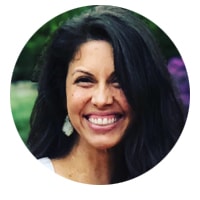
Amberle Brown is the monitoring, evaluation, and learning advisor for WR’s USAID-funded community-based RMNCH work and World Relief’s Disability Inclusion Point Person. Her personal experience with vision loss sparked her passion for disability inclusion, which has led her to work with World Relief to promote disability inclusion across all program sectors and to co-found The Banquet Network, an organization that equips churches to include people with disabilities. Amberle holds an MSN and MPH from Johns Hopkins University and a BSN from Texas Christian University.
Change Rebuilds: Jerome’s Story
As we round the corner of 2020 toward the end of the year, we’re bringing you more made-for-change stories from across the World Relief community.
Today, World Relief Chicagoland’s Jerome Bizimana shares his story of rebuilding. He fled violence in his home country of the Congo and eventually resettled in Illinois. Jerome now works for World Relief, and his story reminds us that change rebuilds because we serve a God who is in the business of rebuilding.
We hope Jerome’s story excites and inspires you to join us as we come alongside others to rebuild.
Fleeing From Home
It was 1996 and the war had just broken out. The Democratic Republic of the Congo had always been my home. But this was a brutal, bloody war, and it was too dangerous to stay in the country, so my family and I fled. For the next 19 years, we lived in one Tanzanian refugee camp after another. When one camp closed, we packed up and moved to another. It wasn’t perfect, but it was a life away from the war.
One night in 2012, I was attacked by criminals at my home. Luckily, nearby police officers were able to save me from harm, but my assailants escaped. Before fleeing, they told me that they would kill me. They told me that they had to “terminate my life,” but never gave a reason why.
My heart was broken, and from that day forward, I lived in constant fear. I couldn’t sleep, and many nights I would go to bed wondering if I would wake safely in the morning.
My eyes are wet with tears as I write this. I do not usually talk about my past. I prefer to forget the thirty-one years of my life that I lived hopelessly. But I hope that sharing my story will help others by bringing awareness to the need for refugee resettlement support.
Had it not been for the support systems in place, my family and I never would have been given the opportunity to resettle in the United States as refugees. But thanks to the United Nations refugee services, we were given that chance in 2012. We arrived in the U.S in 2015 after three years of waiting.
But relocation was only the first step.
New Challenges
Life in the U.S. was more difficult than I expected it would be prior to my arrival. My family and I had lived a rural life in Africa. This means that we had never rented a house, paid a monthly bill or applied for medical benefits.
I was so confused, and I wondered if I was destined to be homeless. I wondered how I would survive. During sleep, I dreamed of someone breaking into our new apartment and killing us. The trauma from my 2012 attack was apparently still causing me great anxiety and pain, and that pain was now amplified in this new place.
And the culture was so new, too. During the week leading up to my first Fourth of July, I mistook the sounds of fireworks going off at night for bullets. It wasn’t until I was able to speak with my World Relief caseworker the following morning and hear her explanation that I was able to breathe a sigh of relief.
Building Something New
Over the next few years, with the help of the great staff at World Relief Chicagoland’s Aurora office, my family and I slowly built a new life here in the U.S. At first, we survived on less than twenty dollars a week. But thanks to the case managers and employment counselors at World Relief, my family and I continued to work and learn and acquire new skills.
After a while, I started to think about ways that I could give back. I felt so fortunate, and I wanted to help others that were in my situation. In the beginning, I volunteered at World Relief by providing transportation for new refugees who needed a way to get to their appointments. But I wanted to do even more, and so I kept this request in my everyday prayers.
Then one day, a World Relief AmeriCorps Lifeskills Coordinator who had heard about my daily prayer brought to my attention a job opening at World Relief. I first doubted to apply.
“But with my broken English, do you think I will get this position?” I asked.
But he encouraged me to give it a try anyway and leave the rest to God. So I prayed, and then I applied for the job.
A few weeks later, I was offered the position. I am now a Family Support Coordinator at the World Relief Chicagoland Aurora office.
I love working at World Relief because World Relief changes lives. When I do my job, I am helping God’s children. When my service brings a smile to someone’s face, I am happy.
Back in Africa, I lived a life without goals. But now I have many goals. I have hopes and dreams and plans for the future! I go to bed every night feeling safe, and I wake up in the morning without fear.
I never thought I would be living the life I live. But with the support of World Relief, my life has changed. I believe their services are crucial for helping refugees and other immigrants. This helps them build a prosperous life here in the U.S. Even a one-dollar donation to World Relief means a lot. That dollar will save the lives of countless families in need.
Sometimes I wonder what my life would be like if World Relief had not come to my aid. I still do not know the answer, but I do know that supporters of World Relief’s mission empower millions of families like mine. I have nothing to give that can show you how important your love and support is, but I so want to say thank you so much.
I keep each and every one of you in the World Relief family in prayers. Your hands have been helping to change our lives — the lives of vulnerable populations. Today, I pray that you join me in helping immigrants rebuild their lives in the U.S. and empower churches around the world to serve the most vulnerable.
Will you join us by giving today?
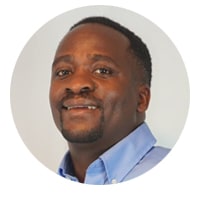
Jerome Bizimana is a Family Support Coordinator at World Relief Chicagoland. He was resettled in the U.S. in 2015 after leaving his home in the Congo. Jerome is now a dad of three children, and he loves to travel.











